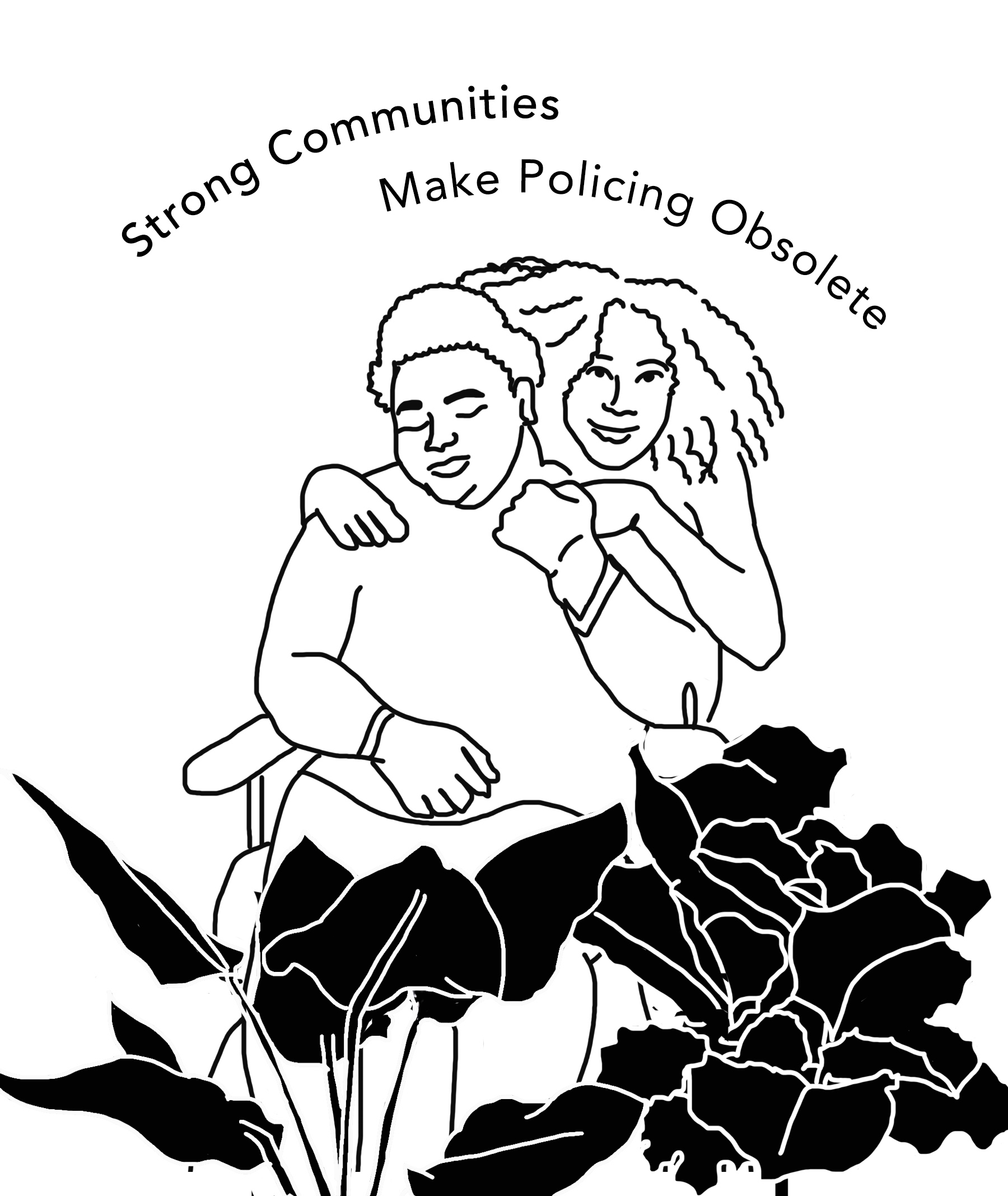Abolition is not limited to ending spaces and practices of incarceration and policing. Fundamentally, abolition is also about reimagining new ways of life such that a world in which prisons, policing and other carceral systems as solutions to social problems becomes unthinkable. Abolitionism is also not just about creating new responses to crises but creating a new world in which we thrive such that less crises happen in the first place.
Prisons and policing are not the only carceral systems. Investing in social work and psychiatric agencies is often framed as an “alternative” to policing and prisons. But mental health systems are also carceral and punishing. At the hands of these so-called “gentler” policing systems, people who are Neurodivergent and/or Disabled are simultaneously nonconsenually subjected to violence, incarceration and discrimination, and also excluded from shaping decisions directly impacting our lives.
Abolitionists coined the term “prison industrial complex” to highlight that the problem is not just individual prisons, but that our capitalist economic system is structured through institutions of punishment. Similarly, we must also end the medical industrial complex that is structured, not on systems of care, but rather on profit. Thus, an abolitionist perspective rooted in disability justice must also be anti-capitalist.
We must not reproduce the very systems we are trying to abolish. The solutions we need require centering the needs, ideas and testimonies of intersectionally vulnerable people to create the life-affirming communities we desire and deserve.

We honor and amplify the organizers and communities that offer us the practices and principles of Transformative Justice and Disability Justice, which challenge us to question our willingness and desire to dispose of people in moments of violence, trauma, or crisis. These principles require us to disinvest from existing carceral solutions which normalize removal and neglect by asking, whose “normal” informs who should be removed, neglected and under-resourced? Knowing that there is not one “normal” challenges us to imagine communities wherein it is a given that all people have access to stable housing; nutritious food and clean water; accessible buildings, streets and amenities; free education; affirming and free health care; and antiracist, peer-led, and survivor-centered healing practices and spaces.
We do not live in the world we deserve. That is to say, we do not live in a world where each of us is valued and appreciated, not for what we produce, but for who we are. We deserve a world not where our lived experiences and our identities are medicalized, commodified, pathologized and criminalized, but where we are celebrated and supported in our resilience and growth. We fight for unrecognized worth and humanity.
As uprisings and calls to end incarceration and policing in all their forms continue, we must honor the legacies of the Black, Indigenous, People of Color; Queer, Trans, Intersex and Gender Non-Conforming; Immigrant, Migrant and Refugee; Disabled and Neurodivergent; Women and Femme; Youth and Elder identified survivors and organizers whose resistance and resilience have brought us to this moment today. As we amplify the call from Black organizers and movements to #DefundThePolice and invest in Black communities, questions arise about how we keep our people safe, particularly people who are perceived as “dangerous,” “infirm,” or “unstable” due to their neurodivergence, mental health differences, or disabilities.
As abolitionist psychiatric survivors, people with disabilities, and their accomplices, we believe it is necessary to name the ableist and sanist roots of strategies that rely on forced medication, institutionalization, surveillance and monitoring.
The understanding that police do not make us safe is widening, and people are asking, what does make us safe? How should we deal with the things people usually call the cops about? Some of the emerging proposals are concerning because they suggest we should replace policing and prisons with social workers, mental health treatment, and hospitalization. The problem is, medical and psychiatric incarceration is part of the overall system of policing and incarceration that we need to dismantle. Medical and psychiatric authority is entangled with and part of the authority of police and prisons.
Police and prison abolitionists have been leading these conversations, exposing how reforms that tinker with the rules police are supposed to follow or add new technology or trainings have failed repeatedly because policing is a fundamentally anti-Black, anti-Indigenous, racist, ableist, anti-poor, patriarchal, anti-queer, anti-trans, anti-immigrant system.
It is operating as designed. We can’t mend it; we have to end it.